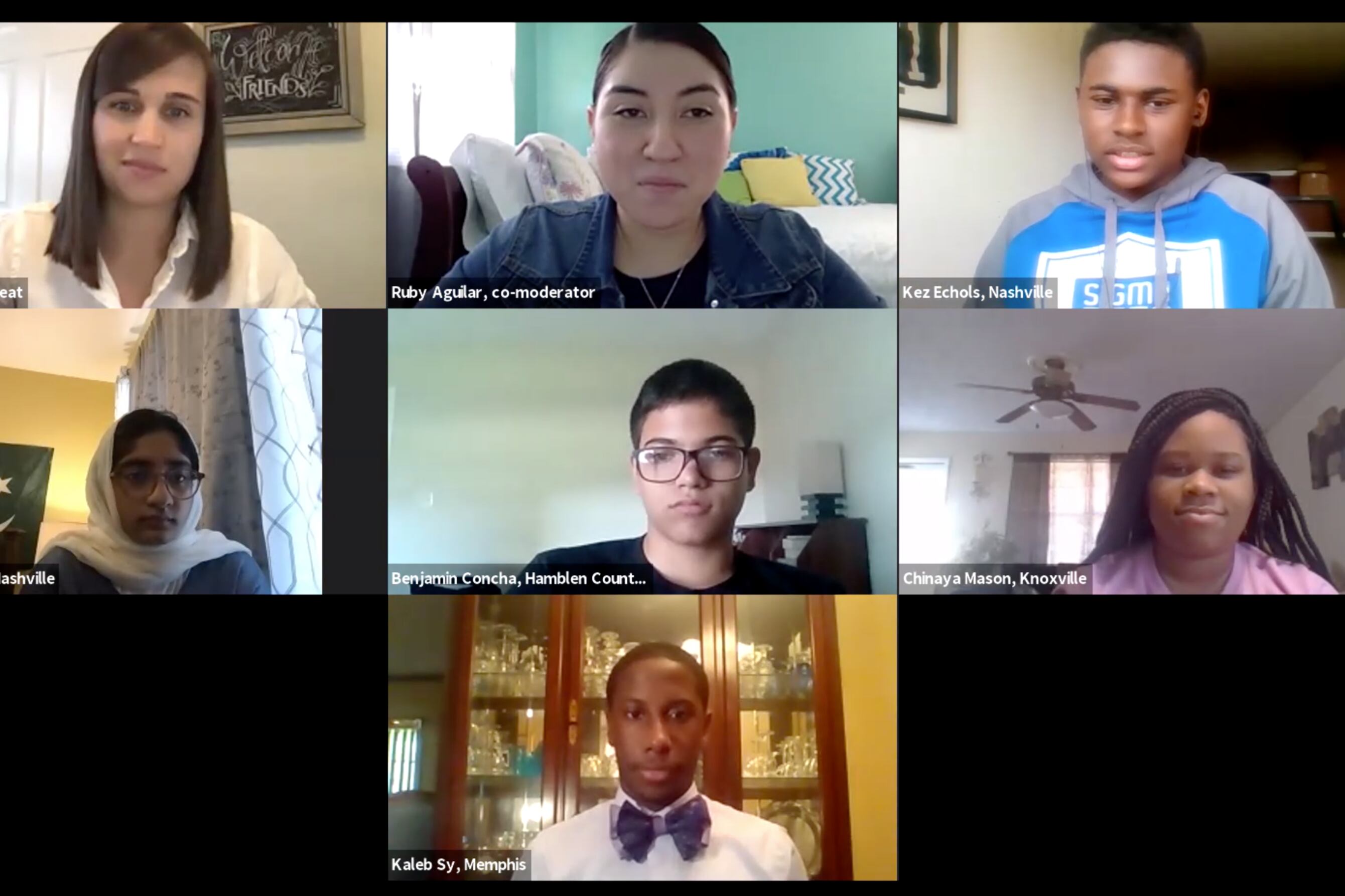When Benjamin Concha’s rural East Tennessee school shut down last spring, it felt like the world suddenly stopped.
“My mom didn’t let me go to what ended up being the last day of school,” said Concha, now a ninth-grader in Hamblen County. “Everything just stopped and communication also stopped and I didn’t know what to do… Now, we’re back in person and things are going again.”
Concha was one of five high school students from across the state to join Chalkbeat and The Education Trust in Tennessee this month for a virtual conversation about students’ hopes, fears, and lessons learned as school resumes this fall (go here to read about the Education Trust’s work with these students). This continued a dialogue started in May, when schools across the nation were shutting down due to the coronavirus pandemic.
This group of students and their peers are embarking on yet another uncertain time of schooling – as their state is one of the first in the nation to begin reopening campuses. While some students in rural counties are back in a school building, others in Memphis and Nashville — Tennessee’s largest school districts — are settling into another season of online learning.
Students talked about their optimism for this semester — especially for remote learning — their concerns about student mental health, and the desire for more support for students preparing for life after high school.
“Students have a crucial role to play in helping educators and policymakers understand the short- and long-term impacts of COVID-19 on their learning and development,” said Gini Pupo-Walker, state director for The Education Trust in Tennessee. “These panels are an important opportunity to hear firsthand how well teachers and schools are supporting students during this critical time.”
Ommay Farah, a senior at Hume Fogg Academic Magnet High School in Nashville, said she watched more than 50 hours of College Board videos on YouTube last semester trying to prepare for her Advanced Placement classes.
“A lot of it was me working harder and not smarter if that makes sense,” Ommay said. “I now have a schedule and know what I’m supposed to do when, and I really like that.”
Concha was one of two students in the group going back in-person, and while his school was just in its first week of classes, he said it’s going really well so far. Everyone is required to wear masks and the school is trying to keep students spread out.
“It mostly felt happy… it was really hard finding my classes,” said Concha, who is new to his high school building. “But every teacher is saying, ‘If we go to virtual, we’ll do this and that.’ They’re preparing us in case we have to switch.”
Kaleb Sy, a sophomore at T-STEM Academy at East High School in Memphis, said regardless of whether or not students are back in person or fully online, they need emotional support and empathy from their teachers.
His district started this semester fully remote with a massive plan in place to give every student a device and internet. Instruction is off to a better start, Sy said, but educators can’t forget about what students have faced this year emotionally.
“We’ve had a pandemic and racial trauma,” Sy said, referencing the protests this summer following the police shooting of George Floyd in Minneapolis. “It’s about having to think about the other side and have empathy for others.”
Kez Echols II, a freshman at Martin Luther King, Jr. Magnet High School in Nashville, said students who need emotional support don’t always get noticed or nudged to get help from counselors, especially in a remote world.
“If guidance counselors step up and out more,” students will be more likely to seek help, said Echols. He said that teachers hold hourlong office hours each week allowing students to pop in and talk.
Chinaya Mason, a senior at Austin East Magnet High School in Knoxville, also said that students need time with counselors more than ever to prepare for college and life after high school.
“Just figuring out when and where to take the ACT is difficult right now,” Mason said. “We need to be more flexible with students who are trying to apply to places… We’re back in school and that’s going better, and that’s great, but life is still really complicated.”
Reporter Laura Faith Kebede contributed to this report.






